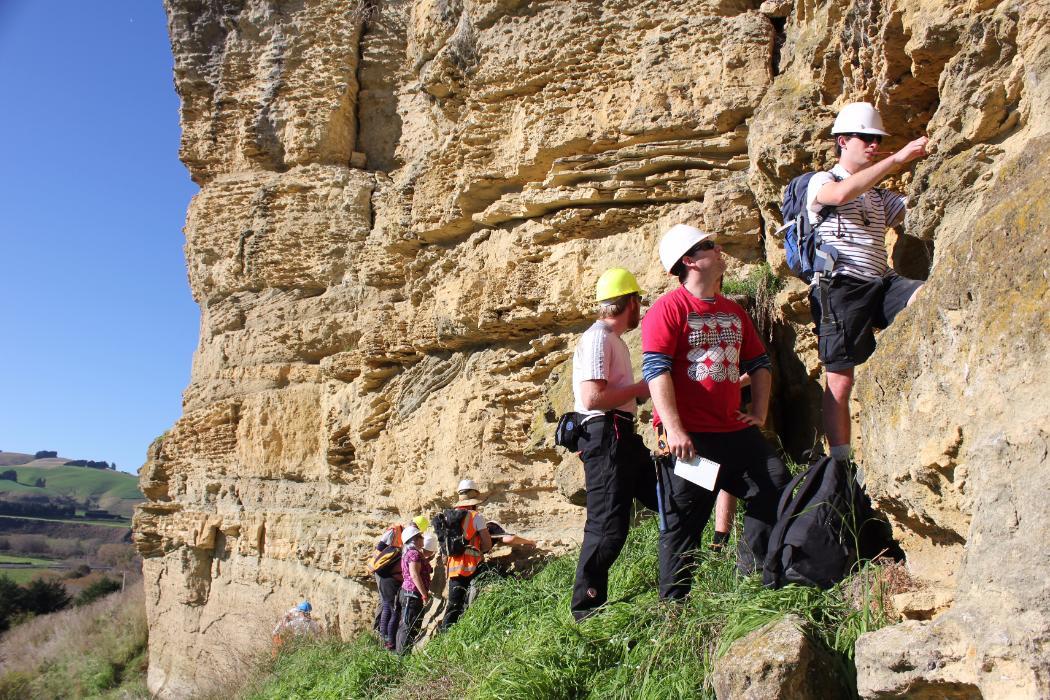Geology
Introduction
Aotearoa New Zealand, on the active margin of the Pacific with its volcanoes, earthquakes, dramatic geomorphology, and 500 million years of geological history, is one of the best places on Earth to study geological processes. Our position in mid-southern latitudes and relative proximity to Antarctica means that Aotearoa New Zealand is a key location for climate change research.
Geologists are directly involved in the monitoring, prediction, and assessment of hazards such as volcanoes, earthquakes, landslides, and tsunamis. The geologist has an important role in land planning processes and in assessing environmental impact.
Geologists have developed one of the most exciting scientific theories of the 20th century – plate tectonics – which explains the origin and locations of all the major geological features and Earth building processes of the planet. Geologists also search for the natural resources that sustain our technological society, not least of all, water. The construction of buildings, bridges, roads, dams, and reservoirs requires geological expertise.

